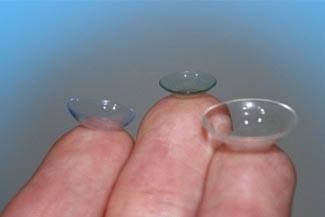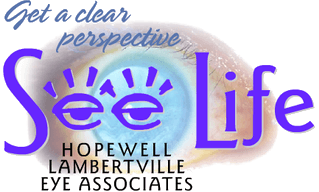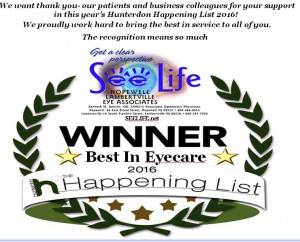Flexible Spending Accounts : Eye Health - Eyeglasses – Contacts – Refractive Surgical Care
With just a couple of weeks remaining in calendar year, time is running out to spend your designated “Flex” funds from your Flexible Spending Account (FSA) on eligible healthcare costs.
If you or your spouse / significant other have an FSA account through an employer, now’s the perfect time to double-check when your benefits expire. If it’s a calendar year plan, your benefits likely expire on December 31 – which means it’s time to “use it or lose it.”
Essentially, if you’ve saved money from each paycheck into an FSA plan but don’t use it on eligible health care costs by the expiry date, you forfeit those funds and can’t use them at all.
But remember: Time is NOT on your side if your benefits expire on December 31, and our office gets very busy during the holidays with college students at home needing appointments and other FSA users trying to spend their funds. Call us today to schedule your appointment so we can be sure to see you this month! Hopewell Lambertville Eye Associates: https://www.seelife.net/
Our patients often ask which vision care expenses are reimbursable through an FSA. We address that question and others below in our round-up of questions about Flexible Spending Accounts:
Keypoints of FSA / HSA
- Health savings accounts (HSAs) and flexible spending accounts (FSAs) provide tax advantages that can help you pay for common vision and eye-care costs your insurance may not cover.
- Eligible vision expenses include eye exams, prescription glasses, and contact lenses
- You should confirm qualified vision expenses with your FSA or HSA plan administrator to avoid unexpected taxes and penalties.
Did you know that you FSA and HSA accounts can be used for the highly important eye health exam and related contact lens, eyeglass or refractive surgical care. There are many options that are eligible for this coverage in conjunction with your vision plans.
What vision care expenses qualify for Flexible Spending?
The federal government keeps a 21-page list of eligible expenses that you can consult. You, your spouse and children can use these Flex funds for a variety of vision-care expenses in your optometrist’s office, including the following:
- Annual eye exams
- Insurance deductibles and copays
- Prescription eyeglasses
- Designer eyewear—with prescription lenses in them
- Computer glasses
- Reading glasses
- Contact lenses – even a year’s supply!
- Prescription sunglasses
- Dry eye treatment
- LASIK eye surgery
HSA/FSA for glasses

Vision insurance may cover all or a portion of the costs for glasses. The benefits may be limited to one pair of glasses or contact lenses per year. Instead of covering additional costs on your own, you can use your HSA or FSA to cover the expense.
If you have a prescription from your doctor, you can use your FSA/HSA to cover many types of prescription glasses, including:
- Bifocal lenses
- Blue-light glasses
- Progressive lenses
- Safety goggles
- Single-vision glasses
- Sports masks
- Sunglasses
HSA/FSA for contact lenses

The IRS considers prescription contact lenses as a qualified medical expense. You can use your pretax funds in your HSA or FSA to cover the cost of your contact lenses and any items required for proper care and maintenance of lenses. This includes contact lens cases, enzyme cleaner, and saline solution.
If you buy contact lenses solely for cosmetic purposes, the expense is not eligible. You are not allowed to use your HSA or FSA for colored contact lenses unless your doctor gives you a prescription.
HSA/FSA for LASIK

LASIK (laser-assisted in situ keratomileusis) is a popular type of vision correction procedure. The doctors at Hopewell Lambertville Eye Associates: https://www.seelife.net/ can let you know if LASIK is an option for you to consider. This eye surgery can replace or reduce your need for prescription contact lenses and eyeglasses. The surgery can cost an average of $4,000 to $5,000. Medicare, Medicaid, and traditional health insurance plans may not cover it unless it’s medically necessary.
The IRS considers laser eye surgery that’s used to correct defective vision a qualified medical expense. That means you can use your HSA or FSA to pay for LASIK. Due to the annual FSA contribution limits and rules, you may not have enough money in your FSA to cover LASIK. Since your HSA allows you to roll over unused funds every year, you may have more flexibility to use this account to save for LASIK.
Hopewell Lambertville Eye Associates: https://www.seelife.net/ can assist you and your family with the scheduling a comprehensive eye health exam for prescription glasses, contact lenses and other vision care needs and vision-related expenses. Our vision care team is here to help, and they’re quite knowledgeable about your options for using those outstanding FSA funds. Call us to schedule an appointment (Hopewell 609-466-0055) Lambertville (609-397-7020)) to come in and explore the possibilities. But don’t wait – we get booked up and quite busy toward the end of December, and we want to be sure we have enough time and social-distancing space to accommodate you!
Internal Revenue Service. (2022). About Publication 502, medical and dental expenses.
Mayo Clinic (n.d.). LASIK eye surgery.




